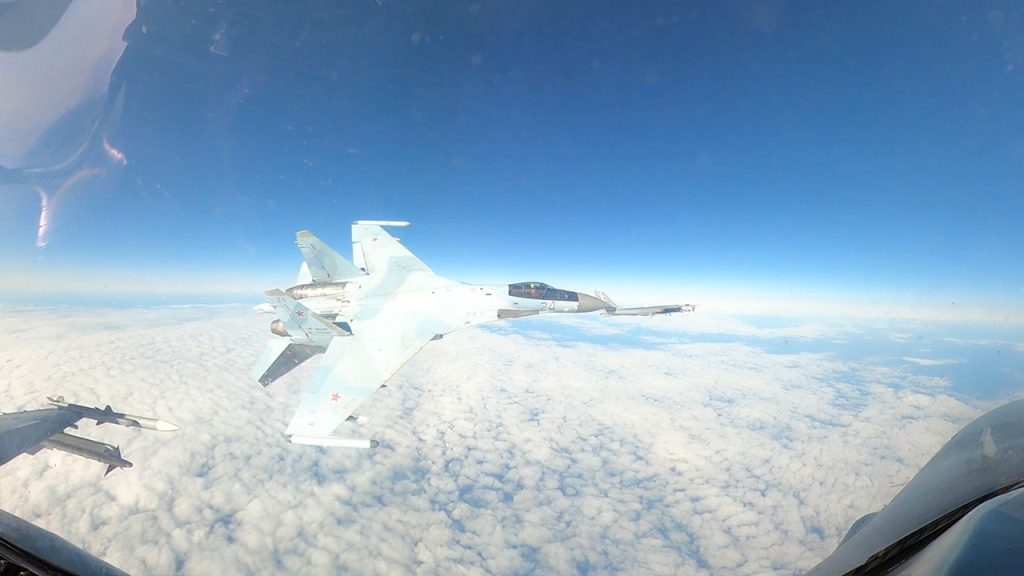NORAD recently released a video depicting a tense moment when a Russian fighter jet flew dangerously close to a NORAD aircraft over the Alaska Air Defense Identification Zone (ADIZ). The incident occurred on September 23 while the NORAD F-16 was conducting a routine intercept of a Russian Tu-95 aircraft. The ADIZ is a stretch of international airspace that requires the identification of all aircraft for national security reasons. The video shows the F-16 approaching the Russian aircraft before a Su-35 jet whipped directly in front of the NORAD fighter jet, prompting condemnation from NORAD Commander Gen. Gregory Guillot for unsafe and unprofessional behavior.
NORAD comprises U.S. and Canadian forces under a joint command and had previously announced the presence of four Russian aircraft over the Alaska ADIZ on the same day as the incident. Although the initial announcement did not include details of the dangerous encounter, it clarified that none of the Russian aircraft entered American or Canadian sovereign airspace. Despite stating that Russian activity in the Alaska ADIZ is regular and not deemed a threat, NORAD highlighted the unprofessional and dangerous actions of the Russian Su-35 during the intercept. The incident underscores the importance of air surveillance and security measures in the region.
The video released by NORAD highlights the potential risks and challenges faced by military aircraft when intercepting foreign planes in international airspace. The visual representation of the dangerous encounter between the NORAD F-16 and the Russian Su-35 emphasizes the need for caution and professionalism during such operations. Gen. Guillot’s condemnation of the Russian pilot’s behavior underscores the serious implications of unsafe maneuvers in the sky, especially in sensitive areas like the Alaska ADIZ. The incident serves as a reminder of the importance of maintaining clear communication and adherence to international aviation protocols to prevent misunderstandings and potential conflicts.
The presence of Russian military aircraft in the Alaska ADIZ is not uncommon, and NORAD routinely monitors and intercepts such flights to ensure airspace security. However, the recent incident involving the Russian Su-35 jet crossing in front of the NORAD F-16 highlights the potential for escalation and the need for vigilance in carrying out intercept operations. While NORAD stressed that the Russian activity in the ADIZ is not considered a threat, the unprofessional behavior displayed by the Russian pilot during the intercept raises concerns about the risks associated with such encounters. The incident underscores the ongoing tensions in the region and the importance of maintaining clear procedures and communication to avoid incidents.
NORAD’s response to the incident includes releasing a video to provide transparency and raise awareness of the challenges faced by military forces in monitoring and intercepting foreign aircraft. By condemning the unsafe and unprofessional behavior of the Russian pilot, Gen. Guillot reaffirmed NORAD’s commitment to upholding safety and security in the Alaska ADIZ. The joint U.S.-Canadian command’s efforts to maintain a strong presence in the region and safeguard national airspace demonstrate the organization’s dedication to protecting North American skies. The incident serves as a reminder of the ongoing need for vigilance and readiness in responding to potential threats and ensuring the safety of air operations in the region.


